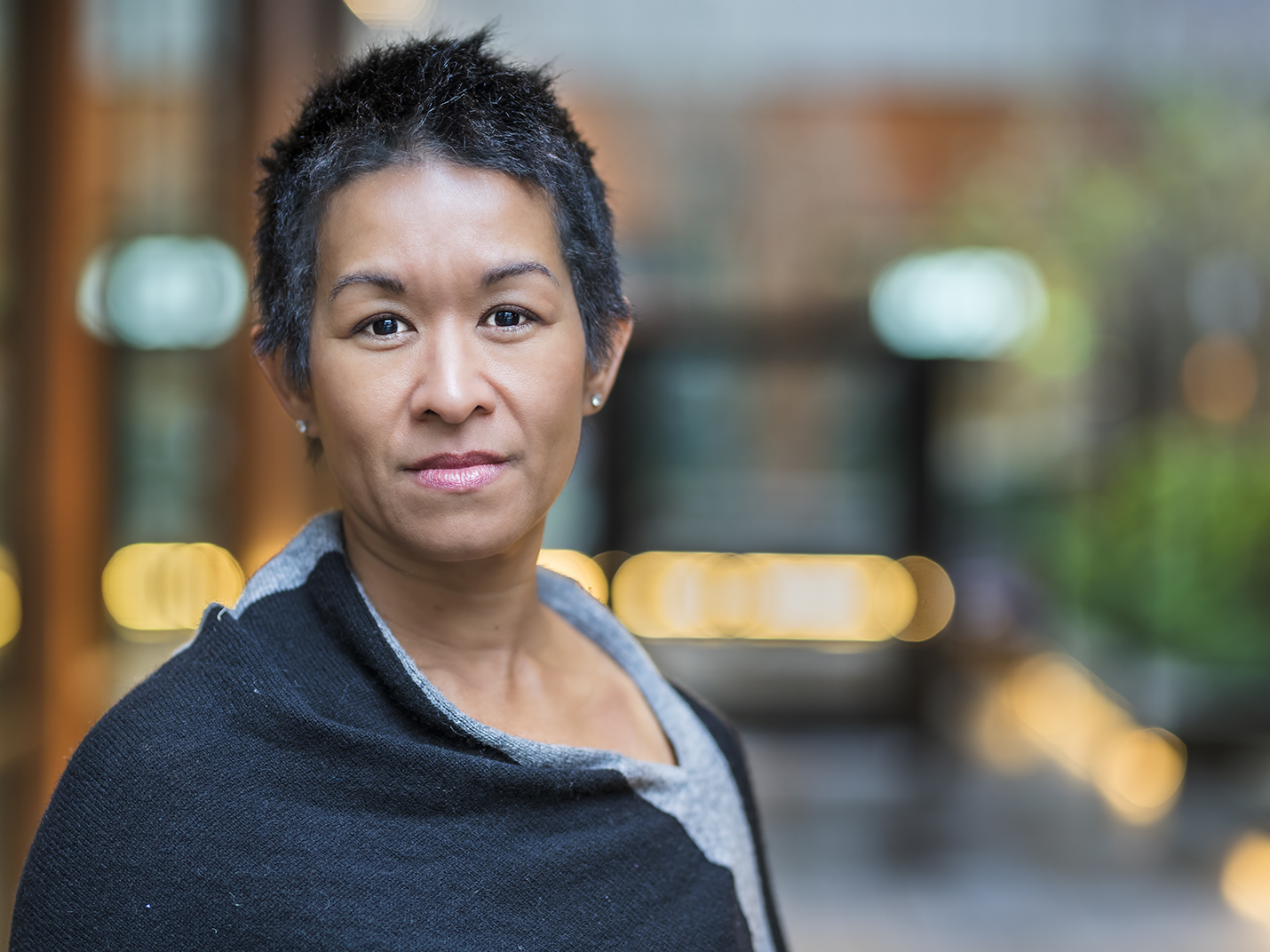Living a half block from the beach may sound luxurious, but growing up in the 1970s in Cam Ranh Bay, Vietnam, Thao Nguyen said it was a sign of poverty.
She jumped in the water every day, nonetheless, welcoming a life the rich cityfolk looked down on — a life where people supported themselves by fishing in the bay, or, in her family’s case, traversing through the nearby mountains to farm vegetables.
Nguyen was born in the Khánh Hòa Province in 1971. Living by the ocean during the Vietnam War also meant that Nguyen’s family home was next to a United States Air Force base situated on the bay. Her origin is tied to the entirety of Cam Ranh Bay, the sand and the military base alike. She was born an Amerasian: a child of a Vietnamese mother and an American soldier.
An estimated 100,000 Amerasians were born during the Vietnam war, which began in 1955 and officially ended two decades later. Many, including Nguyen, never met their fathers — U.S. soldiers who returned to the U.S. after the war and lost contact with the mothers of their children.
Nguyen experienced a hardship that was unique even among Amerasians: She was the daughter of an African American soldier. According to the Library of Congress Research Guides, in 1965, a little less than one-third of ground battalions were filled by African Americans. So even though Nguyen knew a few other Amerasians in her town, none looked quite like her.
“I stood out a little more, because I’m just so black,” Nguyen says. “(Other Amerasians) could hide themselves better around the crowd. Doesn’t matter how I want to hide myself, people still can see me.”
Her hair was “puffy” and her skin was darker than her ruthless classmates, who perceived her as American and bullied her for it when she walked to school.
“‘You American, go back to your country. You don’t belong here,’” she says they’d tell her. “I wished that I wasn’t born. It was really hard.”
Nguyen saw many fellow Amerasians quit going to school to avoid the torment. But she knew education was imperative for a successful future and would repeat things in her mind that her mom taught her, such as, “You don’t know me as a person. You have no idea who I am inside. Keep moving on.”
When she was 4, her family was forced to move south as military troops moved closer to Cam Ranh Bay from the north.
When her family returned to Cam Ranh Bay after the war, they found that almost everything was taken from their home. They lived off sales of her mom’s jewelry and a small profit made raising vegetables.
In spite of the hardship, Nguyen was a straight-A student — although she was barely recognized for her academic accomplishments, unlike her classmates who weren’t Amerasian. She had ambitions of becoming a lawyer, hoping to fight against human injustices like the ones she endured everyday.
In 1988, Vietnamese government officials notified Nguyen’s mother of the Amerasian Homecoming Act, a law passed by the U.S. Congress allowing Amerasians and their immediate families to immigrate to the U.S. Nguyen was 17 at the time.
The Vietnamese Assembly of God Church in Portland brought Nguyen’s family to the city in 1989. They lived in the attic of the pastor’s home, and she attended Franklin High School for three years, graduating with honors.
“My life was simple. My goal was to focus in school,” Nguyen says. “English, I barely know the language. But I say, in my mind, ‘I’m gonna try. If I try hard enough, and I can’t make it, I don’t feel sorry, because I did try. And if I give up, then I will feel sorry now.’”
Nguyen earned an associate degree in science from Portland Community College Sylvania. Since English was her second language, she decided to pursue a career in health care rather than becoming a lawyer, assuming she’d have to converse less often as a health care worker than as a lawyer.
She graduated from the Oregon Institute of Technology and became a dental hygienist in 1998. She’s now worked as a dental hygienist for more than 20 years.
Though Nguyen prospered in school in the U.S., a tragic car accident took the lives of her husband, younger brother, and mother during a family beach trip just a couple of years after her graduation from OIT.
Nguyen was hospitalized for 11 days after the crash, suffering from a broken rib and torn intestine. She found the strength to recover from the accident and persist through the trauma it left her by leaning on her friends, therapy, and faith.
“I just live every day,” she says. “I just want to make sure it’s worth it. I should have died. But I survived, and mentally, I got stable.”
She remarried in 2006, and settled down in Happy Valley with her loving husband, Louie. She now mothers 13-year-old twin boys, Henry and James, and has taken trips with them back to Cam Ranh Bay to explore their Vietnamese roots.
“I will put all my energy and support them with everything,” she says. “I actually really enjoy my life now.”
Nguyen still hasn’t met her father, and believes he will find her if he wants to.
As for discovering her place in the U.S., she said she always considered herself an American, fully embracing the uniqueness of her life as she always does — from enjoying her childhood by the ocean, fighting for an education and better life, persevering through a life-altering accident, all the way to finding an identity amongst a fragmented history, while staying true to her personal morals instilled in her by her mother.
“This is my home,” she says.


One thought on “Coming Home to America”
Thank you for sharing your story. You’re a beautiful woman and have accomplished much. The US is lucky to have you here.
Comments are closed.